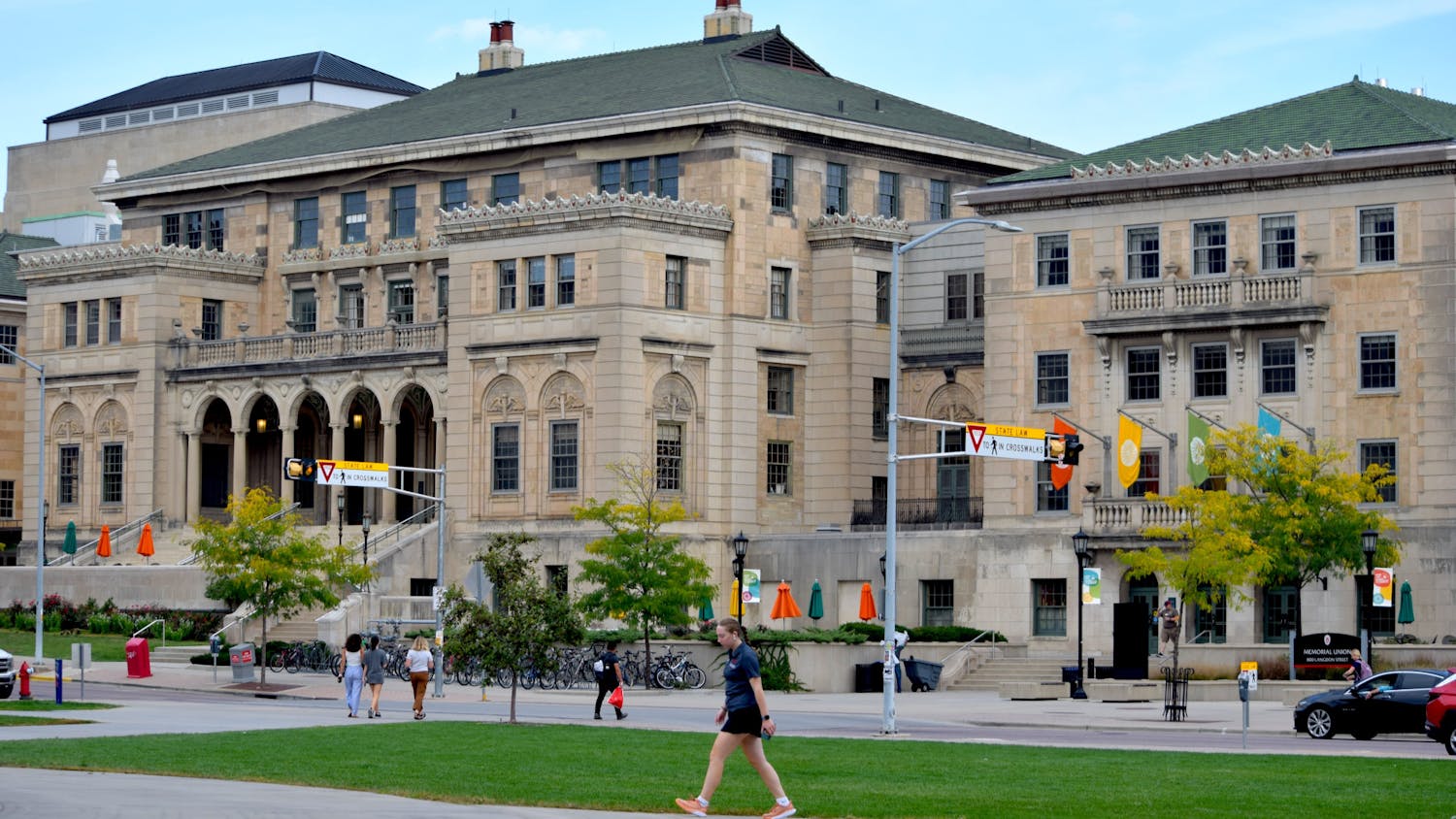Colin Gillis, a nurse, works in an inpatient unit at a hospital in Madison. As a proud member of Service Employees International Union Wisconsin, he is concerned about President-elect Donald Trump’s incoming administration and what it means for the health care industry.
Gillis fears Trump’s appointment of Robert F. Kennedy, Jr. as the U.S. Department of Health and Human Services Secretary, because he is a known anti-vaccine advocate, he said. Gillis said he worries Kennedy will have severe effects on several health care programs, including Food and Drug Administration (FDA) policy and the Affordable Care Act.
“Patients are our number one concern,” Gillis told The Daily Cardinal. “Ensuring that patients are safe and that they have access to what they need to get better, that’s my true north in absolutely everything.”
Concerns with RFK’s anti-vaccine rhetoric
Kennedy has long opposed the FDA’s work on vaccines, despite now changing his stance on the issue. He previously said “there’s no vaccine that is safe and effective” and claimed vaccines lead to autism, a myth that has long been debunked by researchers.
“The fact that RFK, who by all accounts is a so-called anti-vaxxer, could be pulling the levers of the federal agencies that help us maintain access to vaccines and develop new vaccines is terrifying,” Gilllis said.
Gillis has observed “vaccine hesitancy” among patients, family members and health care workers. With a Kennedy appointment, he believes “anti-vax attitudes” will be “more pronounced” throughout Wisconsin.
“The future is unwritten,” Gillis said. “It gives me serious concern because [Kennedy] said a lot of stupid things about vaccines.”
Gillis said he is also concerned with the University of Wisconsin-Madison’s loose vaccine policy, as it makes the safeguard that vaccines provide by combating communicable diseases nonexistent.
UW-Madison does not have specific vaccine requirements for students, but University Health Services stresses the importance of students staying up to date on their vaccinations.
“If more students are coming to Wisconsin without vaccines, the risk of preventable disease like measles goes up,” Gillis said. “A lot of people in our community who live in close quarters are students, and if they are not required to have vaccines, and more people aren’t getting vaccinated, then that exacerbates an already existing public health risk.”
Vaccine administration is key to greatly reducing illness and chronic diseases in both children and adults, Gillis said. Many non-health care workers do not grasp the magnitude of how vaccines and antibiotics work to combat communicable diseases and allow people to recover from them, he said.
RFK’s war on the FDA
Kennedy claimed in late October that the “FDA’s war on public health is about to end” and suggested a proposal to “clear out entire departments” at the FDA.
But Gillis does not believe the FDA is conducting a war on public health.
“RFK, based on some of the things that he’s said about vaccines and the medical profession itself, is the one who would be waging war on public health,” Gillis said. “If he is somehow able to take an axe to the FDA and actually reduce its capacity to monitor the safety of our food and drugs, that could be horrific. That could have really frightening effects on our health care system.”
Gillis said an FDA clearout would lead to a spike in people taking drugs not indicative of their condition, citing spiking numbers of people trying to use Ivermectin in Wisconsin to treat COVID-19 during the pandemic.
He also does not have “confidence” that Kennedy will “heed the advice that he should from people within the FDA,” he said.
Affordable Care Act remains under attack
The fate of the Affordable Care Act (ACA) remains uncertain. Kennedy has focused less on Medicare and the ACA, while Trump and other Republicans have threatened to repeal it.
More than 220,000 Wisconsinites are signed up for ACA benefits, and another 1.5 million receive Medicaid services. If the ACA and Medicaid are cut, people could lose services or coverage altogether. In the state, at least 883,000 people with pre-existing conditions could lose protections.
Gillis said it would be “a human tragedy” if lawmakers overturned the ACA. Gillis said this confirms what he already suspected: many Wisconsinites are dependent on the ACA for access to health care without putting themselves at financial risk.
“If you add financial uncertainty to that medical emergency, it only magnifies the emotional consequences of what is already a terrible tragedy in some individuals life,” Gillis said. “When I have to watch that happen, when I’m part of the system that is making a medical emergency worse by adding financial anxiety to it, I feel it’s moral injury… it causes you distress because you’re complicit in something that is causing harm to others.”
Gillis is afraid that if the ACA is taken away, the feeling of “moral injury” will make “fewer people want to go into health care,” and is even more worried that people will “leave health care.” In a state that projects a deficit of between 12,000 and 19,000 nurses by 2040, that could be extremely consequential.
“We see a lot of tragedy when we work in healthcare,” Gillis said. “I don’t want to see any more than I have to.”
But with Dane County Circuit Court Judge Jacob Frost striking down more than 60 sections of Wisconsin’s 2011 Act 10, law that curbed collective bargaining rights for public sector unions, earlier this month, Gillis hopes health care workers will have a tool — unionization — they can use to protect both themselves and their patients.
“That gives me a little bit of hope,” Gillis said. “Because then we have a tool that we once had to protect ourselves and our patients restored to us.”
Clara Strecker is a copy chief for The Daily Cardinal. She also covers state news.






